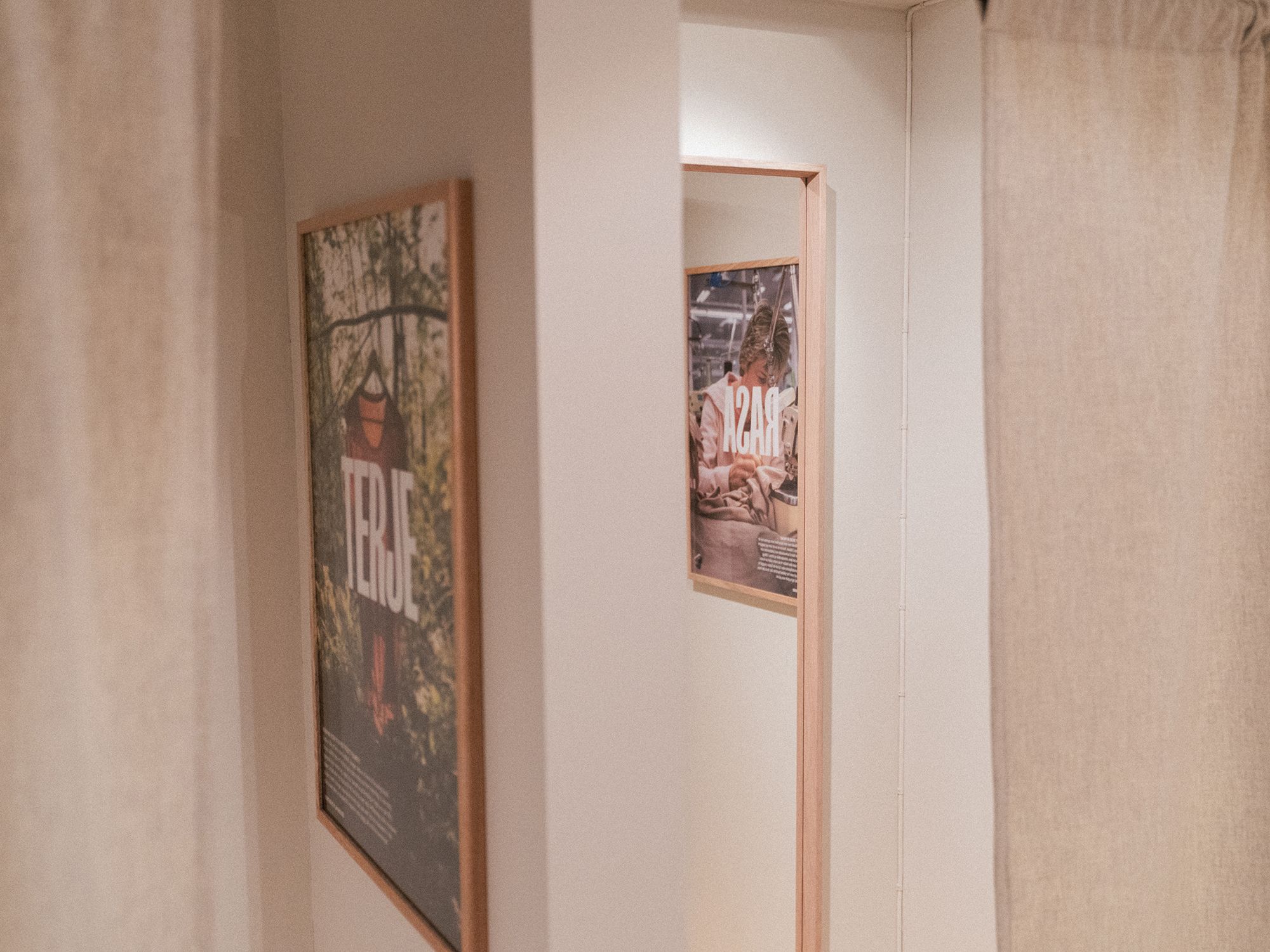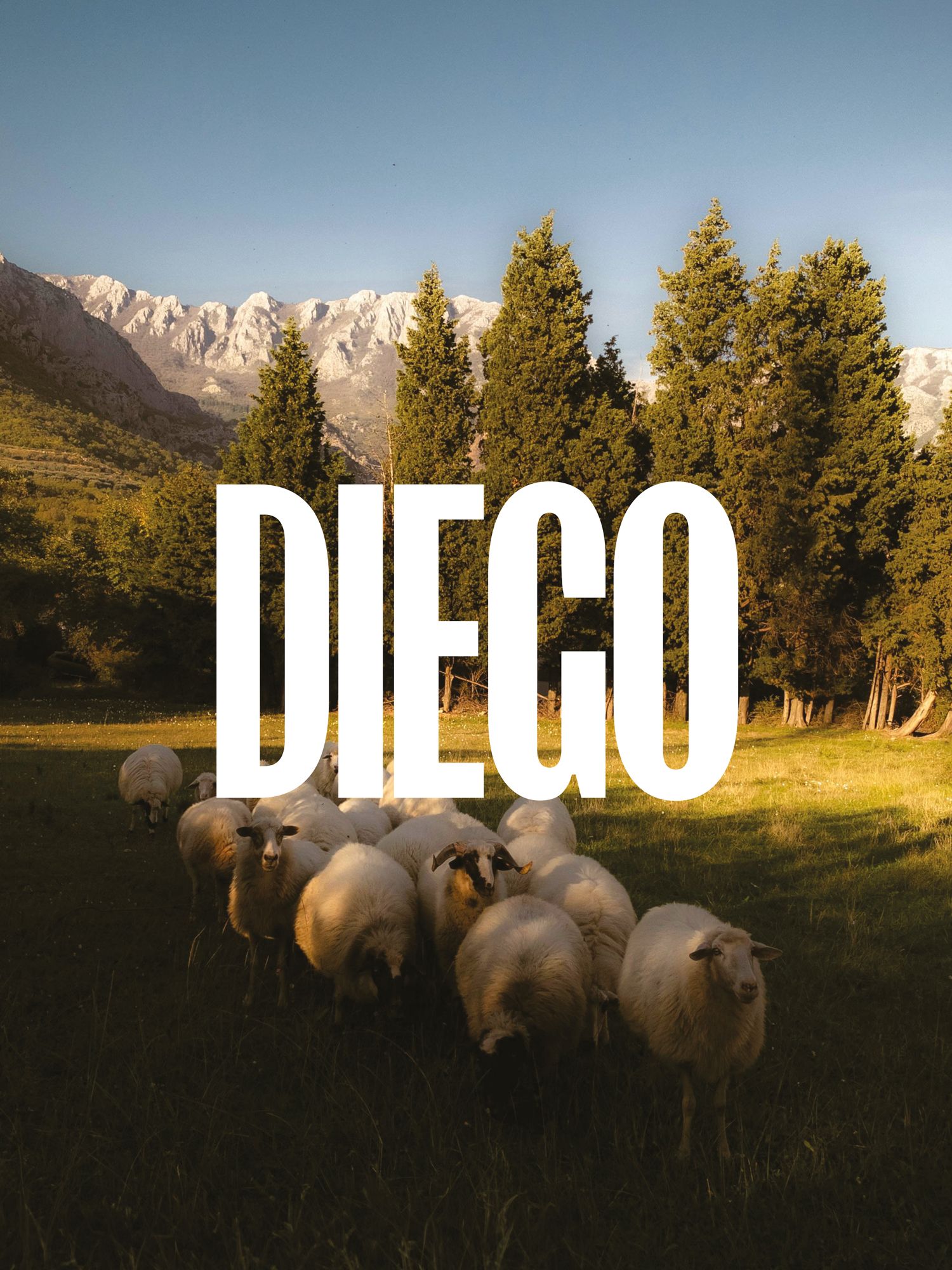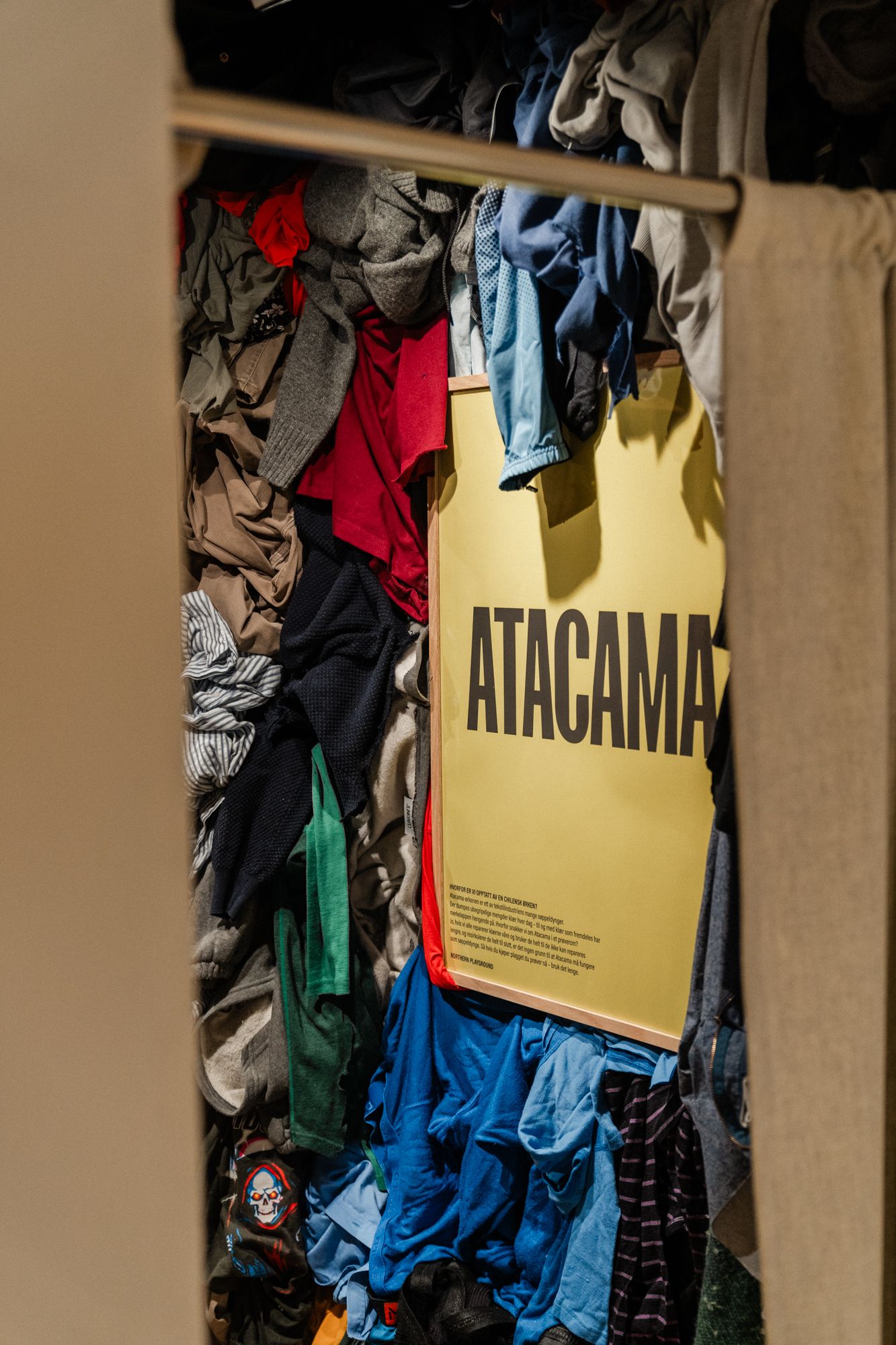
Fitting rooms
We've all been in a fitting room at some point. Some go there rarely, while others visit almost daily. The experience can vary—some find it stressful, a hassle, while others enjoy retreating from salespeople and the noise of the store. No matter which type you are, fitting rooms have one goal: to get you to buy clothes.
Fitting rooms are designed to make us feel good. The paint on the walls is sometimes a specific shade meant to give you a sense of comfort when you close the door behind you. The lighting is carefully planned, not only to make the clothes pop but also to flatter your face and figure. The mirrors are large, so you don't have to exert extra effort to see the clothes you're trying on in the context of the rest of your outfit. On the speakers (which are sometimes present in fitting rooms), music plays that matches the store's or brand's identity, immersing you in a journey where you fit into the brand's world. Nothing is left to chance—the fitting room is designed for sales.
Let's do it a little differently!

Better Decisions
In our store at Grünerløkka in Oslo, we also have fitting rooms. Four, in fact. All four have lighting that highlights the clothes well. The paint is neutral and pleasant, the coat rack on the wall is spacious, the music from the store is easily heard in the fitting rooms, and the mirrors are large. In many ways, we're doing the same as every other store. But there’s a little twist. We believe that knowledge leads to better decisions, and we therefore want to take our customers on a little journey—the journey of the garments:

Fitting Room 1: The Raw Material
In the first fitting room, we meet Diego. He is a sheep living in Argentina. The sheep we use for wool production live a good life, free from stress and contact with toxic pesticides. The grass they graze on is also not sprayed with harmful chemicals. The raw material we get from these sheep is called organic wool. This way of producing wool costs a bit more for the farmer, for us as the producer, and, ultimately, for our customers. But might you take better care of the garment you're about to buy if you know where the wool comes from?

Fitting Room 2: The Worker
In fitting room number two, we meet Rasa. She has worked at our main manufacturer, Utenos, for more than half her life. What all of the producers and workers we collaborate with have in common is that they work under decent conditions. The pay is fair, the working hours are normal, everyone is entitled to vacation days, and weekends can be spent on leisure and family time instead of work. Additionally, all of our factories are located in Europe, where we have better oversight of working conditions, and the transport distance is shorter. This also costs a bit extra.
We believe that this information will encourage you to take extra good care of the garment you may buy. That you'll see the people behind the stitches and craftsmanship, who deliver high-quality work while also enjoying a good life.

Fitting Room 3: The Consumer
In the third fitting room, you’ll meet Terje—or rather, Terje’s t-shirt. The t-shirt was a gift Terje received about two years ago. Now, two years later, it’s completely worn out. "It’s in terrible shape," as Terje would say.
You might think, “Two years? That’s not such a long lifespan.”
Well, in Terje’s case, it’s actually quite long. In addition to spending time at the cabin, he wore the t-shirt every day for two years. He chopped wood, cooked meals, read books, went hiking, picked mushrooms, went to the store, and mowed the lawn, to name a few things.
Telling the story of Terje’s t-shirt as a customer story was the obvious choice. It’s the clearest proof that you can fully wear out your clothes before buying new ones. If Terje can inspire our customers to wear the clothes they already have in their closets more—and actually wear them out completely before buying new ones—then Terje has done a small but important job in reducing our customers' environmental footprint.

Fitting Room 4: Garbage
In the fourth and final fitting room, we welcome you to Atacama. This desert landscape in Chile is the most uncomfortable and visible evidence that the textile industry is one of society's worst industries. Every day, tons of clothing are dumped in this desert and other similar areas around the world. The reason? Overproduction and consumption that far exceed actual needs. Here, clothes are discarded with their tags still attached, alongside garments that we Norwegians throw away at recycling stations. These reuse and recycling stations lack the capacity to handle everything they receive, and the clothing is sent to places like the Atacama Desert to be dumped.
The consequences are severe. Soil, wildlife, forests, and groundwater are being poisoned. Ecosystems are breaking down, and the future for these areas is nearly impossible to save.
If the awareness of Atacama and how overproduction and overconsumption have a direct impact on the climate makes our customers think twice before purchasing a new garment, then our fourth fitting room has truly done its job.
An Obvious Paradox
So, don't we want to sell clothes? Of course, we do. After all, we are a clothing brand that relies on sales. A paradox? Yes. But we hope to reach many people. We want our customer base to grow so that we can spread our sales among many individuals instead of selling a lot of clothes to just a few people. If all these individuals embrace our philosophy of owning fewer clothes and using them extensively for everything they do, we might see that places like Atacama and other areas around the world have a bit less clothing to deal with in the future.
